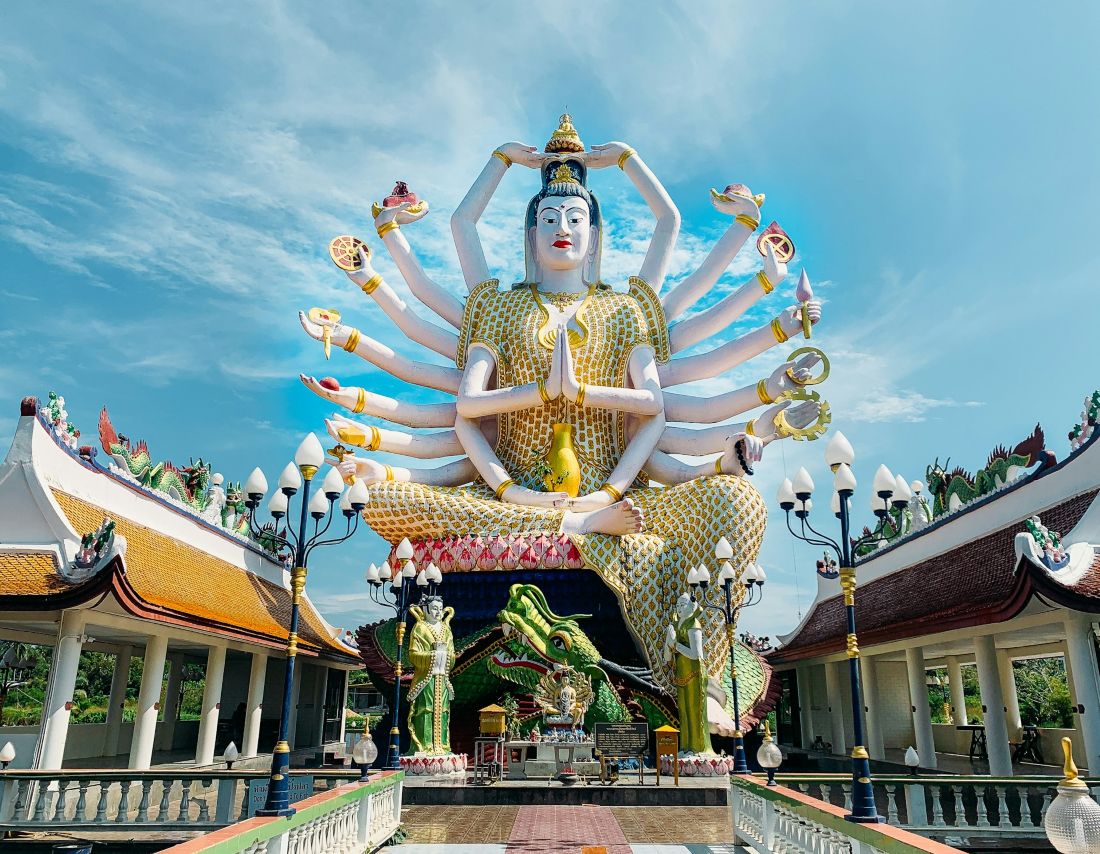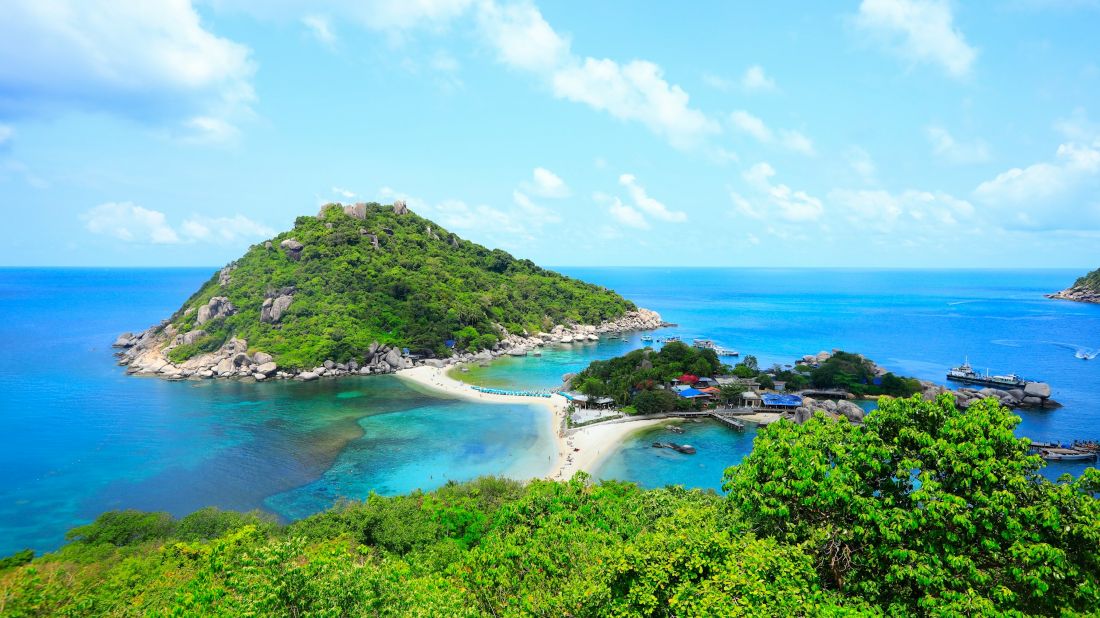3 Days Thailand (Koh Samui)
Koh Samui > Koh Samui 2N > Koh Samui
Duration
3 Days
Group Size
12 persons
Location
Thailand
Sketch Itinerary
Day 1
Arrival at Koh Samui Airport
Day 1
Arrival at Koh Samui Airport
Overnight Stay at the Hotel in Koh Samui
Day 2
Koh Samui City Tour
Day 2
Koh Samui City Tour
Overnight Stay at the Hotel in Koh Samui
Day 3
Koh Samui - Departure
Day 3
Koh Samui - Departure
Transfer to Koh Samui Airport as per flight schedule
End Tour
Itinerary
Day 1: Arrival at Koh Samui Airport

Arrive at Koh Samui airport, meet our rep and transfer to hotel (PVT)
Overnight Stay in Koh Samui
Day 2: Koh Samui City Tour

After breakfast this morning, Koh Samui City tour - SIC. Rest of the day is free to explore on own.
Overnight Stay in Koh Samui
Day 3: Koh Samui - Departure

Breakfast will be at hotel, Check out and transfer to airport.
End Of Tour
Included/Excluded
02 Nights Accommodation At Hotel
Breakfast At Hotel
All Sightseeing Point To Point Basis
Airport Transfers on PVT basis
Tour Koh Samui on PVT basis
Infant up to 2 Years Complimentary
Sightseeing Other Than Specified In The Itinerary is Chargeable
Personal Expenses, Extra Meals, Starters & Drinks
Guide Charges
Any Incidental And Other Expenses Which Are Not Specified In The Inclusions
Hotel Details
Koh Samui (2 Nights)
Experiences
 Adventure & Thrill
Adventure & Thrill Beaches & Islands
Beaches & Islands Culinary & Food
Culinary & Food Culture, Heritage & History
Culture, Heritage & History Scenic Drives
Scenic Drives Shopping & Local Markets
Shopping & Local Markets Spa & Wellness Retreats
Spa & Wellness Retreats
Water Sports Adventures
FAQs
Do I need a visa to travel to Thailand?
Visa-free entry is available for citizens of many countries (including India) for up to 30 days if entering by air, or 15 days if entering by land.
For longer stays, a tourist visa (valid for 60 days) is required.
Visa-on-arrival is available for citizens of certain countries.
Always check with the Royal Thai Embassy or their website before travel.
Travel insurance is recommended.
What is the best time to visit Thailand?
November to February is considered the best time—cool, dry weather.
March to May is hot and humid.
June to October is the rainy season, but lush and less crowded.
Islands on the Andaman coast (like Phuket and Krabi) are better from Nov-Apr, while Gulf of Thailand islands (like Koh Samui) are great from Jan-Sep.
What should I pack for Thailand?
Lightweight, breathable clothes (cotton/linen);
Swimsuits, sunscreen, hat, flip-flops;
Conservative clothes for temples (cover shoulders and knees);
Umbrella or raincoat during the monsoon;
Mosquito repellent;
Power adaptor (Thailand uses 230V, Type A/B/C plugs).
Are there any cultural do's and don’ts in Thailand?
Do’s:
Greet with the Thai “wai” (palms together bow);
Dress modestly in temples;
Remove shoes before entering homes or temples;
Respect the Royal Family;
Learning a few Thai words like “Sawasdee” (hello) and “Khop Khun” (thank you) is appreciated.
Don’ts:
Don’t touch anyone’s head;
Don’t point feet at people or statues;
Don’t raise your voice or lose temper in public;
Avoid public displays of affection.
What food should I try in Thailand, and is it safe?
Try popular dishes:
Pad Thai, Green Curry, Tom Yum Soup, Mango Sticky Rice;
Street food is usually safe, but eat where locals eat.
Drink bottled water only.
If vegetarian, ask for “mai sai neua” (no meat) or “jay” meals.
What about internet access and SIM cards?
Thailand has excellent mobile coverage and Wi-Fi in most tourist areas.
Buy a tourist SIM card at the airport or 7-Eleven. Popular providers: AIS, DTAC, TrueMove.
Data packages are affordable and fast.
How do I get around in Thailand?
In Bangkok: BTS Skytrain, MRT, taxis, tuk-tuks, river ferries, Grab.
Other cities/islands: Songthaews (shared taxis), motorbike taxis, scooters.
Long-distance: Domestic flights, buses, trains, ferries.
Renting scooters is common but drive carefully and carry an international license.
What are the top places to visit in Thailand?
Bangkok:
Grand Palace, Wat Pho, Wat Arun, Chatuchak Market, Chao Phraya cruise.
Chiang Mai:
Doi Suthep Temple, Elephant sanctuaries, Sunday Night Market.
Phuket & Krabi:
Beaches, Phi Phi Islands, James Bond Island, water activities.
Pattaya:
Coral Island, Sanctuary of Truth, vibrant nightlife.
Ayutthaya:
Ancient ruins, UNESCO heritage sites, river cruises.
Koh Samui, Koh Phi Phi, Koh Tao:
Island life, diving/snorkeling, relaxed vibes.
Some of the festivals to look forward to are
Songkran (April 13-15) – Thai New Year with massive water fights.
Loi Krathong (Nov) – Lantern festival with floating offerings.
Vegetarian Festival (Oct) – Unique rituals in Phuket.
Yi Peng – Sky lantern festival in Chiang Mai.
What type of accommodations are available?
Budget hostels, mid-range hotels, luxury resorts, beach villas, eco-lodges.
Booking platforms: Agoda, Booking.com, Airbnb.
Check for hotels with free breakfast, pool, Wi-Fi.
What is Koh Samui famous for?
Palm-lined beaches, luxury resorts, temples (Big Buddha), waterfalls, and nightlife in Chaweng.
Some of the top beaches are Chaweng (lively), Lamai (relaxed), Bophut (quaint), and Maenam (quiet).
Koh Samui is also known for yoga retreats, wellness centers, and Thai spa experiences.
from
₹ 15,599
Nov - Mar 26
Tour Start Date
{{ start_date_html }}
Tour End Date
{{ end_date_html }}
Last Booking Date
{{ last_booking_date_html }}
{{start_date_html}}
2 Pax
4 Pax
6 Pax
8 Pax
Standard
Breakfast
Sedan
Van
{{type.desc}}
{{type.display_price}} per person
Extra prices:
({{type.price_type}})
{{type.price_html}}
Discounts:
{{type.from}} - {{type.to}} guests
from {{type.from}} guests
- {{ formatMoney(type.total) }}
({{type.price_type}})
{{ type.price }}%
{{ formatMoney(type.price) }}
- {{total_price_html}}
- {{pay_now_price_html}}
from
₹ 15,599





